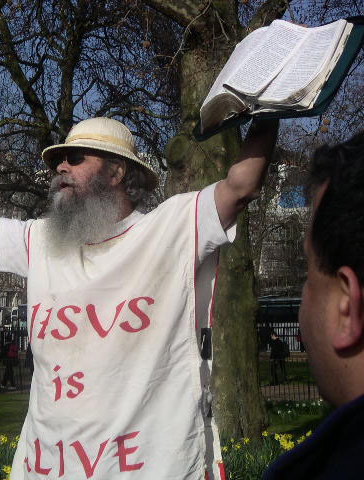This course engages theories and descriptions of
textual scripts that shape people's words, actions and
experiences, both religious and secular, and that
people manipulate for spiritual and social effects on
religious performances, objects, cultures, traditions
and themselves. This iteration of the course focuses on theories of
rhetoric and of ritual in religious practices.
Rhetoric and ritual are separate subjects, each
surrounded by a long and established history of
academic discourse, beyond and outside of religious
studies: ritual has been a preoccupation in
anthropology from the origins of that field in the
19th century, while rhetoric has been the subject of
theoretical discourse much longer, since the 5th
century BCE. This course provides an introduction to
both theoretical traditions with particular attention
to their application to religious practices. However, the topics of ritual and rhetoric are also
entangled with each other. All forms of academic
discourse are verbal, and so necessarily rhetorical.
Theories about ritual as well as rhetoric are
therefore themselves rhetorical. Yet ritual practices
use words as, at most, only one element in bodily
practices that involve time, space, various objects
and most, if not all of the human senses. The
rhetorical, that is verbal, nature of theory tends to
distort and impede treatment of bodily activities that
do not necessarily privilege or prioritize words.
Furthermore, the words that rituals incorporate may be
used for ritual purposes rather than or in addition to
rhetorical ones. The problem in a nutshell is that
verbal interpretation is a form of rhetoric, but
ritual actions often resist reduction to verbalized
symbols. So this course also addresses the problem of how to
describe rituals in words without turning rituals into
systems of verbal symbols. Conceptual Outline: The course will proceed by bringing selected readings
in the theories of ritual and rhetoric to bear on
examples and case studies provided by both the
instructor and the students. The seminar will begin by
having each participant orient themselves and their
research interests toward the topics of rhetoric and
ritual. The instructor will introduces a selection of
biblical and post-biblical texts that will serve as
his reference points in discussions of the secondary
literature throughout the course. Students will then
bring other examples of rhetorical and ritual
practices from disparate cultures and traditions to
bear on the discussions and, especially, on their
final research projects.
Course Requirements: Academic Integrity Policy: Disability-Related Accommodations Religious Observances Policy Required Texts:
Catherine Bell, Ritual
Theory, Ritual Practice, SU library online
Clifford Geertz, Interpretation of
Culture, SU library online George Kennedy, Comparative
Rhetoric, Bird library reserves Kimberley Patton, Religion of the
Gods,
Bird library reserves Roy Rappaport, Ritual and
Religion, Bird library
reserves Arnold Van Gennep, Rites of
Passage, Bird library
reserves For further resources relevant to the topic of this course, consult the Bibliography at the end of the syllabus.
Topics and Readings (for full citations, see bibliography below): |
||||
|
Day |
Topic |
Texts: |
| Jan 18 |
Where Watts is coming from |
Watts, “Ritual Rhetoric in the
ANE” PIC of Greek krater (in Louvre)
showing blood sacrifice Watts, “Rhetoric of Sacrifice” |
| Jan 25 | Rhetoric about Rhetoric 1: persuasion |
Aristotle, Rhetoric 1.1-3,
2.1 |
| Feb 1 | Where YOU are coming from | Student presentations of one piece of primary material about religious rhetoric or ritual, or both |
| Feb 8 | Rhetoric about Rhetoric 2: cross-cultural rhetoric |
Kennedy, Comparative Rhetoric,
prologue & chs. 1, 2, 4, 6 |
| Feb 15 |
Ritual uses of
Rhetoric 1: speech acts |
Austin, How to do Things with
Words, 1-24 |
| Feb 22 |
Ritual uses of
Rhetoric 2: ritual texts |
Goody, "Construction of a Ritual Text" Bell, "Ritualization of Texts" Larson, "Gospels as Imperialized Sites of Memory" Wilkens, “Infusions and Fumigations” |
| Mar 1 |
No Class |
No Assignment (see next line) |
| Mar 4-5 |
SU's REL joint symposium with Bochum's CERES | Attend as your schedule allows |
| Mar
8 |
Rhetoric
about Ritual 1: the linguistic turn |
Lévi-Strauss, Naked Man,
last chapter Geertz, Interpretation of Culture, chaps. 1, 4, 5, 6 |
| Mar
22 |
Rhetoric about Ritual 2: theorizing “ritual” |
Staal, “Meaninglessness of
Ritual” Asad, "Toward a Genealogy of Ritual" Mahmood, "Rehearsed Spontaneity" |
| Mar
29 |
Rhetoric about Ritual 3: theorizing performance | Due: Paper topics
and texts Tambiah, “A Performative Approach to Ritual.” Grimes, Ritual Criticism, chaps. 1, 9, 10. Bell, Ritual Theory, Ritual Practice, 13-17, 47-54, 67-142, 182-223. |
| Apr
5 |
Ritual
without Rhetoric 1: ritual experience |
Freud, “Obsessive
Actions and Religious Practices.” Van Gennep, Rites of Passage (all) |
| Apr
12 |
Ritual
without Rhetoric 2: embodied metaphors |
Due:
Paper thesis, bibliography and outline Turner, Forest of Symbols,
19-92 Boivin, “Grasping the Elusive and Unknowable” |
| Apr
19 |
Ritual
in Religious Rhetoric |
Patton, Religion
of the Gods
, 3-23, 161-187,
239-247, 307-216 and browse what is in between.
|
| Apr 26 Student
paper presentations |
||
| May 10 Due: Research papers | ||
|
Comparative Rhetoric:
|
